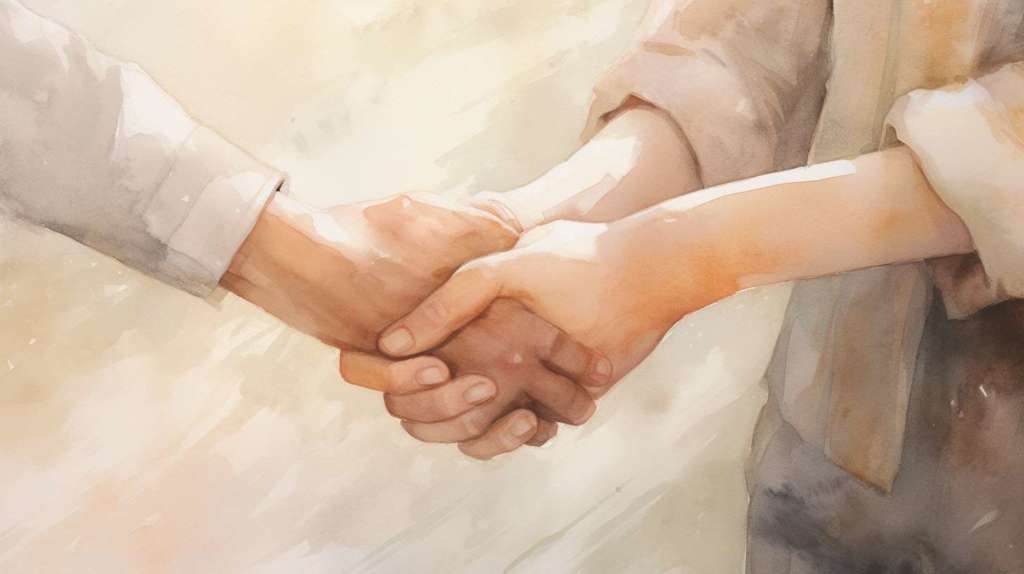- by Tim Thompson
What to do when someone dies at home
A step-by-step simple guide for funeral arrangements when someone dies at home.
Dealing with the death of a loved one can be a challenging and emotional time. When someone dies at home, several important steps need to be taken to ensure that the necessary legal and administrative processes are followed and that the deceased is laid to rest with dignity and respect.
Initial Steps
When someone dies unexpectedly at home or even if one passed away at night, the first step is to confirm the death. The death should also be reported to the necessary government departments. This involves checking for any signs of life and consulting with a medical professional on behalf of the coroner, such as the deceased’s GP, to officially confirm the passing.
Following the confirmation of someone who has died, it is crucial to report the death to the authorities. This includes contacting the local police or ambulance service, who can assist with the necessary legal and administrative procedures.
When death occurs, arranging for a medical certificate is also crucial, especially if the body will be taken across borders. The coroner and the body must be involved when the certificate of cause of death is issued by a medical professional, states the cause, and is required to proceed with funeral arrangements and potential transportation.
Legal and Administrative Processes
Registering the death in the UK as well as dealing with the administrative affairs regarding the body is a key legal requirement. This involves contacting the appropriate office to register a death, officially recording the passing of the deceased, and to obtain necessary documentation, such as a copy of the death certificate.
Following the registration of the death, it is important to contact relevant government departments and agencies, such as the Department of Work and Pensions, to inform them of the passing and to manage any necessary paperwork and benefits.
Contacting the local council and your home office also needs to be notified, as they may provide support and guidance on matters such as bereavement services and the next steps to be taken.
Home Funeral Arrangements
Deciding on funeral options is a personal and important decision for the spouse or civil partner and other close family. This involves considering factors such as the deceased’s wishes, religious or cultural customs, and financial considerations.
Arranging the funeral involves liaising with a funeral director or service provider to organize the various aspects of the funeral, including the ceremony, transportation, and burial or cremation arrangements.
Following an expected death, the process of arranging the funeral can be more straightforward, as the deceased may have already expressed their wishes and made relevant preparations.
Support and Bereavement
Coping with the Sudden Death in the UK
When coping with the sudden death of a loved one who has passed away at home, your relationship with the person and the array of overwhelming emotions are common aspects. Calling the NHS helpline might be necessary in such circumstances. It is crucial to allow yourself to grieve and seek support from those who had a relationship with the person as well. This may involve family, friends, or a qualified counsellor to help navigate through this difficult time. Understanding that the grieving process takes time and being patient with yourself is crucial after someone passes away.
Seeking Bereavement Support when someone dies unexpectedly or in the case where one passes away at night.
In dealing with the sudden death of a loved one at home, seeking bereavement support can be incredibly beneficial. After this, you’ll need to report a death to several government departments to get approval to move the body to the UK. Many organizations and communities offer bereavement support services, including hotlines, support groups, and counselling services. Utilizing these resources can provide a safe space for expressing emotions, receiving guidance, and finding comfort in knowing that you are not alone in your grief journey.
Dealing with the Unexpected Death of Someone Who Has Died – a time frame which requires you to register the death within five days of the death.
Dealing with the unexpected death of a loved one at home can be incredibly challenging and overwhelming, this is why you’ll need to report the death to several government departments. It is important to acknowledge the shock and seek support from professional bereavement counsellors if needed, irrespective of whether the death occurred at home or at a hospital or nursing home. Taking the time to process the sudden loss and seeking understanding through grief support systems can aid in coping with the unexpected nature of the passing.
Frequently Asked Questions
What is the procedure when someone dies at home?
The process when someone dies at home involves confirming the death, notifying the authorities, arranging for a medical certificate, and organizing funeral arrangements. It is important to follow the legal and administrative procedures as well as seek emotional support to cope with the loss.
What do you do when someone dies unexpectedly at home?
When someone dies at home naturally, it is crucial to follow the necessary steps to confirm the death, register it legally, and arrange for the funeral. Seeking support and guidance from bereavement services and professionals can also provide crucial assistance during this challenging time.
What not to do when someone dies? One thing to remember is that the death must be registered within five days of the death.
When someone dies, avoiding making rushed decisions and major changes immediately following the passing is important. It is crucial to ensure that legal and administrative requirements are fulfilled, such as registering the death and obtaining the necessary documentation, before making any significant decisions or actions.
What to do first when someone dies?
When someone dies at the address of the person, the first step is to confirm the death. It is crucial to check for any signs of life and consult with a medical professional, such as the deceased’s GP, to officially confirm the passing. Following this, it is critical to notify the authorities, including the local police, ambulance service, and the coroner once the body has been examined. They can assist with the necessary legal and administrative procedures in relation to the person’s death.
What to do if someone dies peacefully at home?
If someone dies peacefully at home, it is essential to arrange for a medical certificate. This document, issued by a medical professional, states the cause of death and is required in order to proceed with the funeral arrangements. It is crucial to register the death, contact relevant government departments, and inform the local council as part of the legal and administrative processes.
What do police do when someone dies at home?
When someone dies at home, the police are notified to determine whether the death was expected. If the death was expected and due to natural causes, a medical certificate can be issued. However, if the cause of death is unknown, or if the death was on a package holiday, for example, the death may need to be reported to a coroner for further investigation and a possible post-mortem examination.
Who do you call when someone dies at home?
When someone dies unexpectedly at home, or in a hospital or nursing home, it is important to contact a funeral director and the deceased’s GP to confirm the passing and arrange for the body to be taken. Additionally, the local register office should be informed to officially record the death and obtain the necessary documentation, such as the death certificate. Upon an unexpected death, contacting the local council is also crucial, as they may provide support and guidance on matters such as bereavement services, steps to be taken, and reporting the death to several government departments.
What if I need help with funeral costs?
If you require assistance with funeral costs, there are avenues for support. It is crucial to explore options for financial aid, such as government assistance or charitable organizations that offer help with funeral expenses. Additionally, seeking guidance from a funeral director can provide valuable information on how to arrange for the death, affordable funeral arrangements, and available resources for financial support during this challenging time.
Questions and Answers from other families
Q: What are the initial steps you need to take when a loved one passes away at home and the death was expected?
A: The first thing you need to do after the death of a loved one at home is to contact your GP or the nearest doctor who can issue a medical certificate giving the cause of death. If someone dies unexpectedly during the evening or at the weekend, you may need to contact an out-of-hours service. The medical certificate is a crucial document that you’ll need to get in order to allow the death to be registered.
Q: What should I do if the death is unexpected or the person died at home and the death occurred suddenly?
A: If the death can be registered as unexpected and the body has been examined, you must call the emergency services immediately, and you may also need to get in touch with the coroner. They will give you guidance on the next steps to take which may include contacting a coroner who will likely order a post-mortem to determine the cause of death before you can arrange a funeral.
Q: How do I arrange to register the death?
A: After receiving the medical certificate, you have to register the death within 5 days in England, Wales and Northern Ireland, and 8 days in Scotland. You can do this at a register office in the area where the person died. The registrar will issue a death certificate once the death has been registered within five days of the death.
Q: How do I inform the government about the death?
A: The Government offers a service called the “Tell Us Once” service which lets you report a death to most government organisations in one go. You will need to have collected all necessary information and documents allowing the death, about the person who died before using this service. This includes their National Insurance number, driving licence number, vehicle registration number and passport number.
Q: What happens following the death regarding the person’s estate?
A: Following the death, the executor or legal representative of the person who has died will need to deal with the estate (money, property and possessions) left by the person. This may include applying for probate, which is a legal document proving that they have the right to do this.
Q: What actions do I need to take if the person who died was in a care home or hospice?
A: If the death took place in a care home or hospice, the staff will inform you about what to do next. They should also provide you with a medical certificate, which you will need to register the death; this is a particularly important step if the body will be taken out by the person responsible for the funeral arrangements in the UK. If they died in a hospital, the hospital mortuary will keep the body until you arrange a funeral.
Q: How do I go about arranging the funeral?
A: To arrange a funeral, you may want to use a funeral director or arrange it yourself. The deceased person may have left instructions on their wishes for their funeral in their will, in such a case, it’ll be important to contact a funeral director. The funeral can usually only take place after the death has been registered, and the person who’s died is returned to the UK if they died abroad.
Q: How should I inform friends, family, and other contacts about the death?
A: It is important to let friends, family, and relevant organisations know about the death as soon as possible. Consider using newspaper or online obituaries to report the death of your loved one.
Q: What to do if the person who died may have wished to donate their body to science?
A: If the person who died expressed wishes to donate their body to science for medical research, the executor of the estate or next of kin should inform the hospital or the Human Tissue Authority as soon as possible following the death.
Q: What should I do if someone dies abroad?
A: If a loved one dies abroad, you should contact the closest Foreign, Commonwealth & Development Office (FCDO) for guidance. They can provide advice on registering the death, making funeral arrangements abroad, or bringing the body back to the UK.









